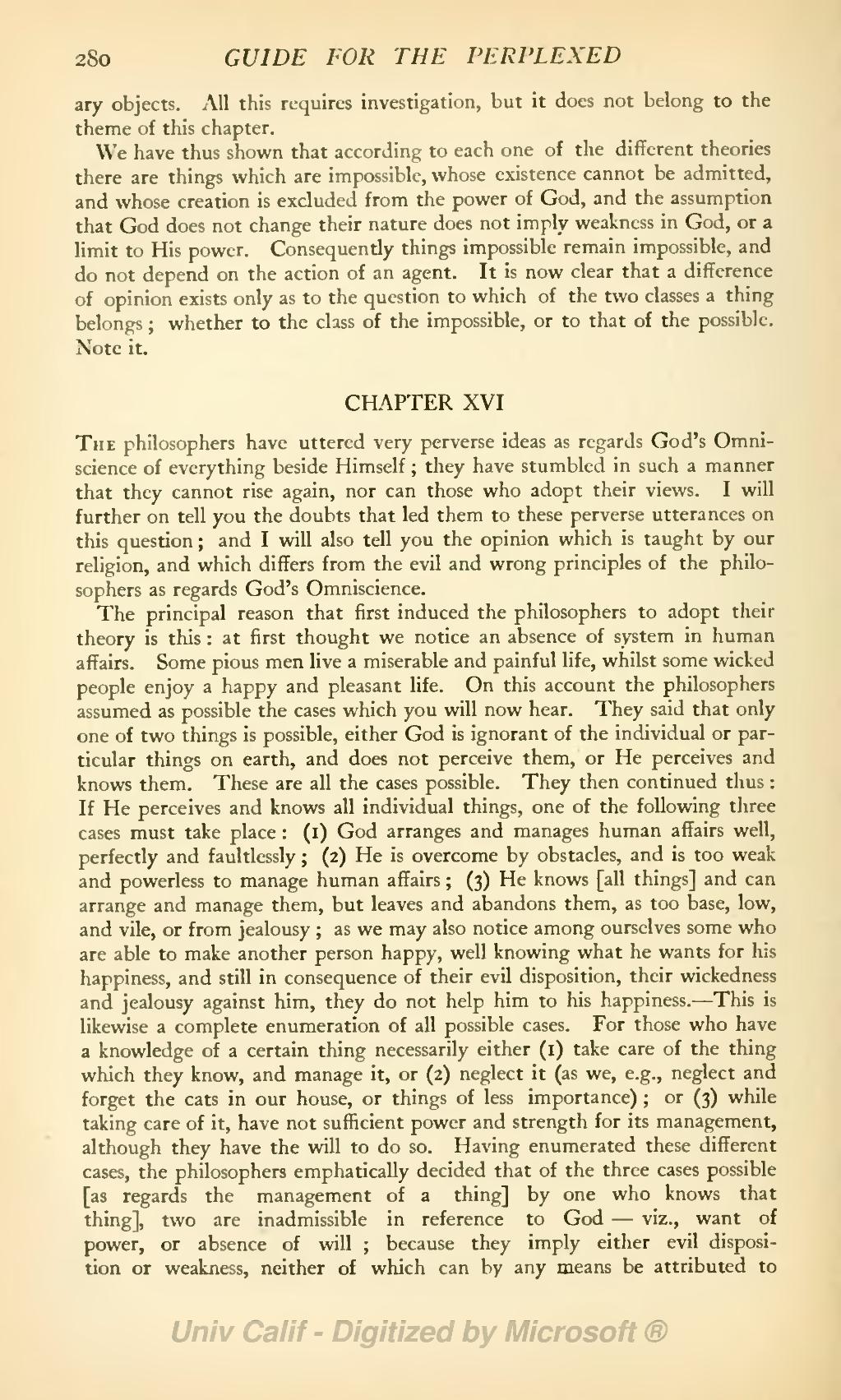objects. All this requires investigation, but it does not belong to the theme of this chapter.
We have thus shown that according to each one of the different theories there are things which are impossible, whose existence cannot be admitted, and whose creation is excluded from the power of God, and the assumption that God does not change their nature does not imply weakness in God, or a limit to His power. Consequently things impossible remain impossible, and do not depend on the action of an agent. It is now clear that a difference of opinion exists only as to the question to which of the two classes a thing belongs; whether to the class of the impossible, or to that of the possible. Note it.
CHAPTER XVI
THE philosophers have uttered very perverse ideas as regards God's Omniscience of everything beside Himself; they have stumbled in such a manner that they cannot rise again, nor can those who adopt their views. I will further on tell you the doubts that led them to these perverse utterances on this question; and I will also tell you the opinion which is taught by our religion, and which differs from the evil and wrong principles of the philosophers as regards God's Omniscience.
The principal reason that first induced the philosophers to adopt their theory is this: at first thought we notice an absence of system in human affairs. Some pious men live a miserable and painful life, whilst some wicked people enjoy a happy and pleasant life. On this account the philosophers assumed as possible the cases which you will now hear. They said that only one of two things is possible, either God is ignorant of the individual or particular things on earth, and does not perceive them, or He perceives and knows them. These are all the cases possible. They then continued thus: If He perceives and knows all individual things, one of the following three cases must take place: (1) God arranges and manages human affairs well, perfectly and faultlessly; (2) He is overcome by obstacles, and is too weak and powerless to manage human affairs; (3) He knows [all things] and can arrange and manage them, but leaves and abandons them, as too base, low, and vile, or from jealousy; as we may also notice among ourselves some who are able to make another person happy, well knowing what he wants for his happiness, and still in consequence of their evil disposition, their wickedness and jealousy against him, they do not help him to his happiness.--This is likewise a complete enumeration of all possible cases. For those who have a knowledge of a certain thing necessarily either (1) take care of the thing which they know, and manage it, or (2) neglect it (as we, e.g., neglect and forget the cats in our house, or things of less importance); or (3) while taking care of it, have not sufficient power and strength for its management, although they have the will to do so. Having enumerated these different cases, the philosophers emphatically decided that of the three cases possible [as regards the management of a thing] by one who knows that thing], two are inadmissible in reference to God viz., want of power, or absence of will; because they imply either evil disposition or weakness, neither of which can by any means be attributed to Him.
